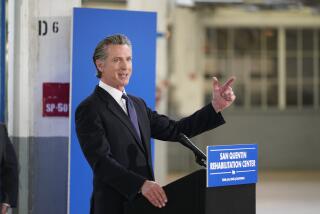Behind the attack ads
Whatever the outcome of the November congressional elections, the voters are already the losers. They are being inundated by attack ads paid for by organizations with benign-sounding names that refuse to identify their donors. Democracy 21, a campaign-spending watchdog group, estimates that as much as $300 million will be spent anonymously in this election cycle; voters will never know where the money came from.
Consider this (misleading) attack on Sen. Barbara Boxer:
“ California seniors are worried. Barbara Boxer voted to cut spending on Medicare benefits by $500 billion, cuts so costly to hospitals and nursing homes that they could stop taking Medicare altogether. Boxer’s cuts would sharply reduce benefits for some and could jeopardize access to care for millions of others, and millions of Americans won’t be able to keep the plan or doctor they already have. Check the facts and take action. Call Boxer. Stop the Medicare cuts.”
The ad is sponsored by Crossroads Grassroots Policy Strategies, a group advised by master Republican strategist Karl Rove. Established as a “nonprofit social action organization,” Crossroads GPS has not disclosed its donors. Campaign reform advocates are asking the Internal Revenue Service to investigate the group to determine whether it’s in violation of a requirement that it not be “primarily engaged” in supporting or opposing candidates.
One remedy for the avalanche of anonymous attack ads is the DISCLOSE Act, which would require nonprofits like Crossroads GPS and the U.S. Chamber of Commerce (which is covered by a different provision of the tax code) to disclose the names of the companies, organizations and individuals who fund them. The legislation has been approved by the House but was blocked in the Senate by a Republican filibuster; it could, and should, be revived in a postelection session. The DISCLOSE Act also would require the chief officers of corporations — and nonprofits such as Crossroads GPS — to appear in ads and take responsibility for them, just as candidates do for advertising sponsored by their campaigns.
There is no cogent argument against maximum disclosure. (The notion that disclosure would lead to the harassment of donors is laughable.) Nor is there any 1st Amendment argument for secrecy. Even as it ruled this year that corporations had the right to engage in political spending, the Supreme Court upheld disclosure requirements, noting a previous holding that “disclosure could be justified based on a governmental interest in ‘provid[ing] the electorate with information’ about the sources of election-related spending.”
That is what the DISCLOSE Act would do. If those who seek to influence elections don’t have the courage of their convictions, Congress must act to identify them.
More to Read
Get the L.A. Times Politics newsletter
Deeply reported insights into legislation, politics and policy from Sacramento, Washington and beyond. In your inbox three times per week.
You may occasionally receive promotional content from the Los Angeles Times.






